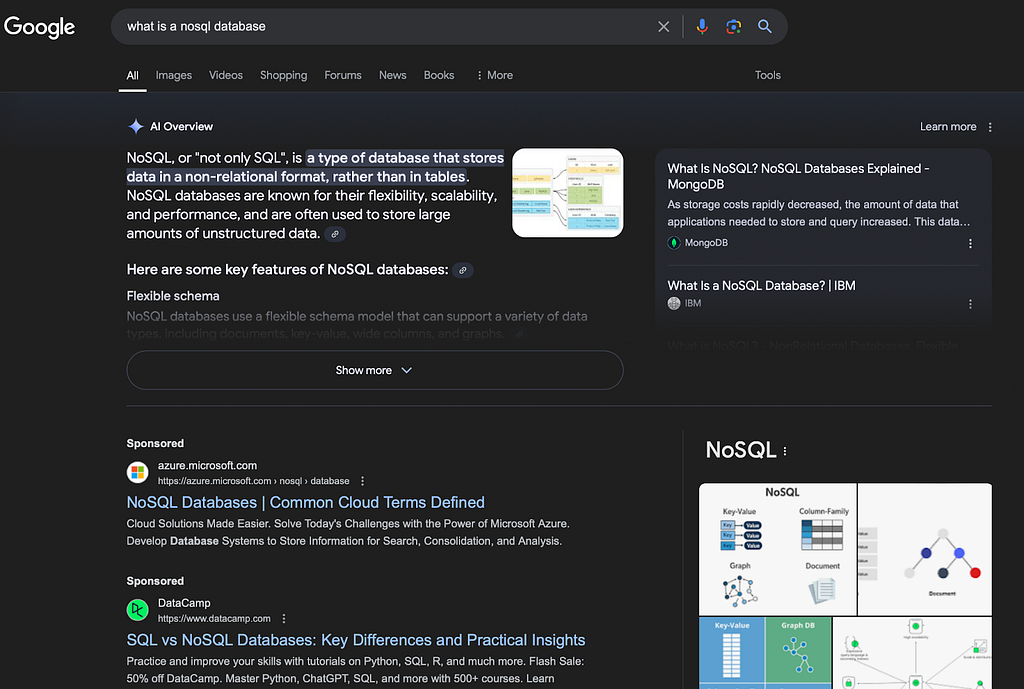We’re Drowning in AI… Now What?
For years and years, we joked about robots taking our jobs one day. “It’s coming,” some warned. Fast-forward to a few years ago when AI exploded seemingly overnight. “It’s here,” those same people said.
Enter budget cuts, mass lay-offs, and software developers the world over echoing a similar sentiment: “What now?”
Here’s the good news: Brands are finding that swapping humans for AI might’ve been premature. Here’s the tricky part: Software developers still must choose to evolve or drown.
How to Make Yourself Invaluable as a Software Developer
Some of us have learned, perhaps the hard way, that while AI is incredible and will only get better, there are some things that will simply turn out better if a human being manages them.
However, we’d also be foolish to deny that things have changed tremendously.
I work with developers every single day, and I wanted to better understand what this evolution has meant for them. What can software engineers do to make themselves irreplaceable in the age of AI?
I did my homework and also spoke with Luce Carter, Developer Advocate at MongoDB and Microsoft MVP, who first told me, “AI is not going away, especially with tools like Copilot. One of the best things you can do is learn a skill called prompt engineering, knowing the best and most effective way to ask the AI for what you want that will produce the most useful results.”
Here’s what else I’ve learned.
1. Solve a Problem
We’ve seen that AI is sometimes great for taking over monotonous, manual tasks — for instance, sifting through or generating code.

But you, the software developer, still have an upper hand: You see the bigger picture. The end goal in mind. The target you’re aiming for. This is a skill unique to you.
There are countless examples of how this can work. One way I’ve seen my teammates elevate the application development process using AI is via vector search, which understands the meaning and context of unstructured data, which it then transforms into numbers.
How does this solve a problem? Well, it allows them (and/or their users) to more efficiently query data.
This is a great example of humans and AI working together in harmony for the greater good. Remember, AI technology might sound cool but is a total moot point if we don’t use it to solve a problem and make people’s lives easier.
If you’re not sure if your work is solving a problem, take a step back, look at what you’re doing, and ask yourself, “So what?” If you can’t come up with a clear answer, there’s more work to be done.
2. Make Way for Strategy
Alright, you’re using AI, in some capacity, to solve a problem. You’ve found ways to leverage the technology to save you time. Now, you’re going to use that newly freed up time for… what, exactly?
Scrolling on TikTok!
Amazon shopping!
Getting a snack!
No, no, and yes because snacks are life, but then get back to work.
We’ve established that AI might be sufficient for repetitive tasks we used to do, so your employer might not need you to do that stuff anymore. What do they need you for, then?
Strategy — one of those fluffy, corporate-y buzzwords we love to throw around without assigning any real meaning to it. So, let’s assign meaning!
Here’s one example. Part of my team’s strategy is to get people on our YouTube channel. This has entailed trying various types of videos to see what gains the most traction. In particular, shorts and long-form evergreen videos perform well for us.
AI might instantly improve our audio, make editing easier, and do some of the heavy lifting for creating thumbnails.
Strategy, however, is about finding out what works and what doesn’t, doubling down on the former and shelving the latter.
3. Humanize Your Work
There’s a little thing called AI fatigue that is creeping in. AI fatigue is exactly what it sounds like: Some folks are becoming tired and suspicious of the technology. For example, 70% of American consumers would rather watch a TV show or movie written by a human, according to Deloitte’s 18th annual Digital Media Trends survey.
There’s something so impersonal, so hollow about a piece of content that was created by AI. There’s no life behind it. No energy. To make matters worse, sometimes, it’s painfully obvious that the brains behind a piece of work was artificial intelligence.
For instance, as an editor, if an article comes across my desk that is one long list of bullet points, I almost know with certainty that it was written by AI. What writers often do is give ChatGPT prompts like, “Give me 5 reasons why,” “Tell me 3 examples,” or “Give me a list of benefits,” and then use the results for the article. Overused phrases like “delving into” are another dead giveaway.
If I can pick out AI content, others can as well, and it’s not always favorably received.
It’s funny, if you think about it: When we all realized how we could use AI to scale our efforts, our work became about doing more, faster. But then we ended up drowning in apps, blogs, videos, games, and more. Search engines are flooded, social media news feeds are beyond cramped, and app marketplaces are packed to the brim.
Here’s one example, as a side note. Google’s AI Overview has pushed organic search results even further down. Combine that with sponsored posts and other features, and organic results are well below the fold.

Now, it’s flip-flopped: One of the best things you can do to stand out in the crowd is make something that’s unique, personal, and has the human touch.
4. Get Specific About What You Do for a Living
It used to be enough to say, “I work in tech.” Then, that became too broad, so we opted for, “I work in Developer Relations” (or something like that). Now, even that isn’t specific enough. For software developers to stay relevant and in demand, they need to be more clear on their position and the value they bring to their organization — or an organization they’re applying to.
I’m thinking of some of the folks I work with in DevRel who specialize in a language community, framework, or technology. Some specialize in the types of content/projects they work on. We no longer do a little bit of everything. We’ve made very clear our priorities, and then fill in the gaps from there.
Why? Because we know that a high-level approach will no longer suffice. This industry is far past that point.
An Opportunity to Be Better
“What I love about technology is that it’s boring and stable,” said no software developer ever.
I’d like to think that one thing that draws us to this industry is that it’s ever-evolving. This can feel like a double-edged sword sometimes because change can be hard and scary.
However, change also gives us an opportunity to be better than we were before, and that’s how I believe we should approach AI and how it’s changing the landscape of our careers. Solve a problem, prioritize strategy, humanize your work, and be specific with your role, and you and AI can work together as friends.
How to Stay Relevant as a Software Developer was originally published in Towards Data Science on Medium, where people are continuing the conversation by highlighting and responding to this story.
Originally appeared here:
How to Stay Relevant as a Software Developer
Go Here to Read this Fast! How to Stay Relevant as a Software Developer